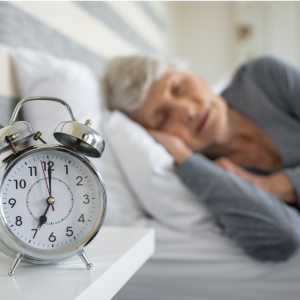We often forget about good breathing and sleep health, even though we do these two things daily! Luckily there are many strategies that we can try, and they are easy to insert into the day.
- Breathing and sleep quality are key factors in health and wellbeing, but can be easily compromised
- Find below some simple strategies to try and improve breathing and sleeping quality
BREATHING
Breathing patterns are directly linked to the autonomic nervous system which controls bodily functions. Exercise is a great remedy for stress relief, as it directly links and mimics what the body would do to get out of a dangerous situation (our flight or fight response).
Taking deep, steady diaphragmatic breaths helps bring the body out of a stress state and into a calm state.
When you are using your diaphragm, this allows our breath to be more effective. Our lungs are shaped like pyramids, with more space at the bottom, allowing the most amount of oxygen to be transferred into the bloodstream.
How to perform relaxation diaphragm breathing
- Place one hand on your chest and the other hand on your stomach. Take a steady deep breath through your nose and feel how your hands move on your chest and stomach
- Try breathing in through the nose for a slow count of 5 – if this leaves you short of breath, start with a slow count to 3
- If you are breathing well, most of the hand movement will be from the stomach
TOP TIP: Do this before bed to help get you into a deeper sleep, faster!
SLEEP
Getting a quality night’s sleep
Something we see in a lot of our members is not getting to sleep on time, but the issue of waking up in the middle of the night. It is normal to drift in and out of different types of sleep as well as wake for brief periods, but we want to make sure we get most of the good quality sleep.
Why do we need good quality sleep?
Poor quality, uninterrupted sleep has been linked to many chronic conditions such as Type 2 Diabetes, obesity and depression. As we age, it is important that we maintain our routine and good daily habits to ensure our sleep quality does not deteriorate.
The Phases of Sleep
Phase 1 – Deep sleep
- Most of your healing and repairing happens during this time, as well as memory consolidation and removal of toxins
- The key to deep sleep is to know that it happens before midnight for most people. Doing relaxation breathing helps you reach a deeper phase of sleep faster
Phase 2 – REM or Rapid Eye Movement sleep
- This is where we dream. Some strategies to achieve this include:
- Eating earlier. Try and eat 3 hours prior to going to sleep, as your body works hard to break down food
- The content of your food has an effect. Eating meals with larger sugar content will affect how you unwind before bed!
- Coffee is better in the morning than in the afternoon or evening, as it continues to stimulate your nervous system for hours after you have finished drinking!
- Have a regular routine. Your body has an internal clock called ‘circadian rhythm’. Going to sleep and eating at a regular time allows for more routine and better sleep quality
- Unwind properly before bed time. Avoid TV screens or mobile phones in general 1 hour before bed
What about napping?
A lot of our members mention that they like a lie-down during the day. This is absolutely fine; however, there are a few things to remember!
- Try not to nap too close to bed time. It is recommended that if you are going to have a nap, it should be around 7-8 hours after you woke up in the morning and not for longer than 30 minutes (this will stop you waking up tired and groggy, and will also not affect your sleep at night)
- Make sure you nap in the proper place, lying down in bed with your head and neck supported. Napping in front of the TV or in an arm chair while reading will leave you groggy and also leave your neck and back sore!
Week 5 challenge: The challenge for this week is to choose one of the above breathing or sleep suggestions and try it! If you have good sleep patterns, try the breathing exercises OR if you struggle with sleep, perhaps have a look at one aspect of your nighttime routine and see if you can make any changes.

